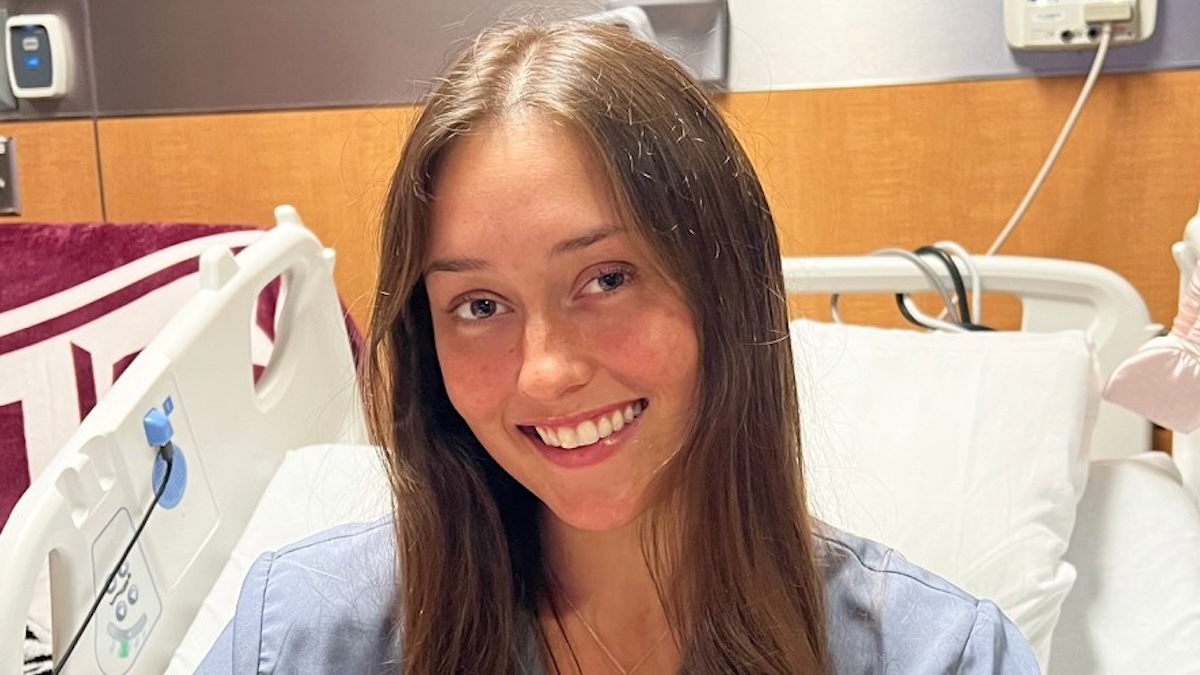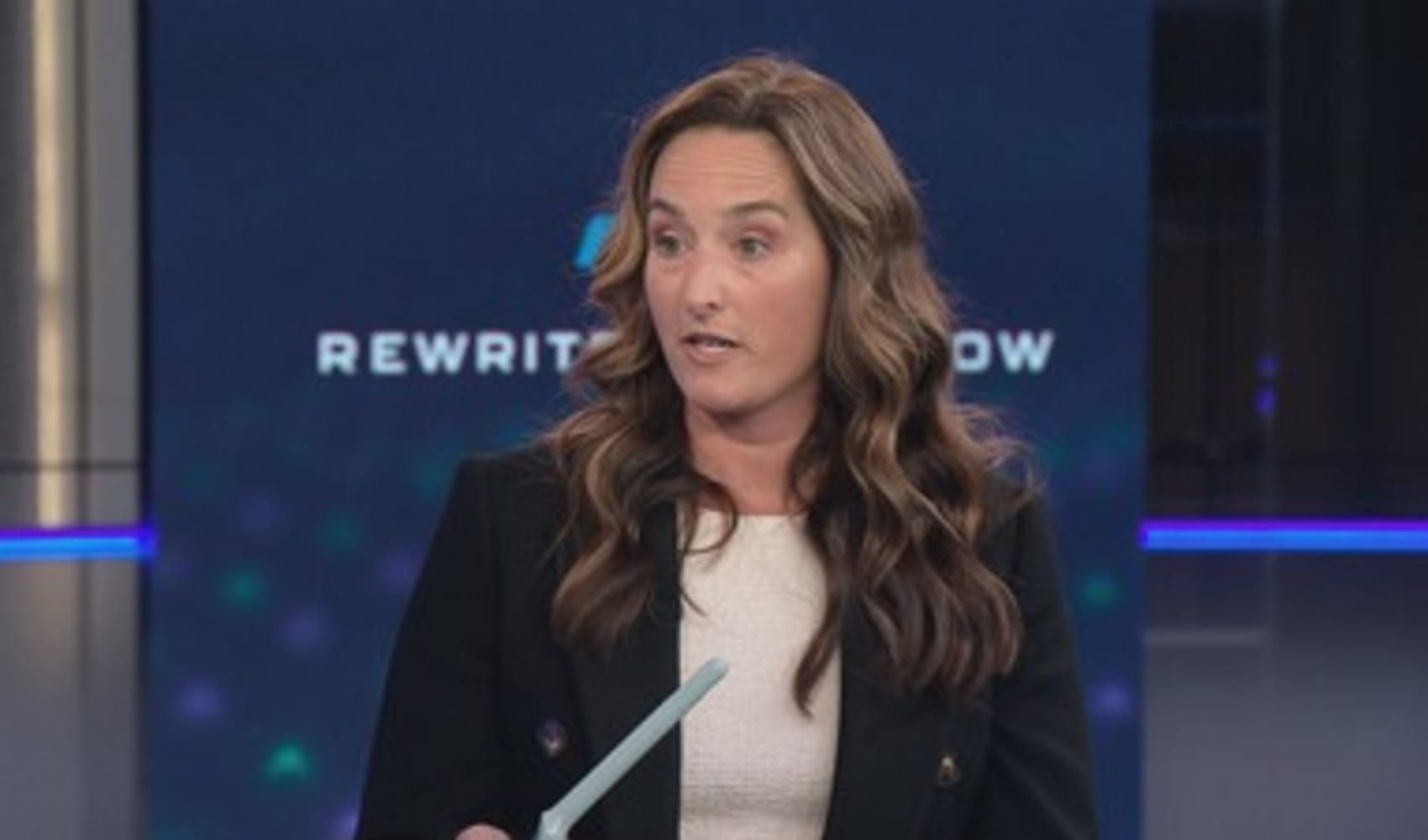Sinus Infection or Leukemia? College Student's Shocking Story
From Sinus Infection to Leukemia: A College Student's Wake-Up Call
Introduction: A Misdiagnosis with Life-Altering Consequences
Imagine feeling under the weather, attributing it to a common cold or sinus infection, only to discover it's something far more sinister. That's exactly what happened to Breeze Hunter, a 22-year-old college student whose seemingly ordinary symptoms masked a life-threatening illness. Her story is a stark reminder of the importance of advocating for your health and seeking thorough medical evaluations. Are you really listening to your body's whispers?
Headaches and Pressure: The Initial Warning Signs
For months, Breeze experienced persistent headaches and a feeling of pressure in her head. She attributed it to the stresses of college life and perhaps a recurring sinus infection. Many of us can relate to dismissing these types of ailments as simply part of the daily grind, right?
Ignoring the Signs?
How often do we downplay our symptoms, hoping they'll simply disappear on their own? It’s a common tendency, but Breeze's experience underscores the potential dangers of ignoring persistent or worsening health issues.
"Just a Sinus Infection": The Misleading Diagnosis
Breeze visited a clinic several times, seeking relief from her discomfort. Unfortunately, she was repeatedly told that she likely had a sinus infection. "I had a lot of fluid in my ears, which was causing the headaches," she explained. "I went to a clinic a few times and they pretty much said it was a sinus infection." This misdiagnosis highlights the challenges of identifying underlying conditions when symptoms overlap with more common ailments.
The Dangers of Rushed Medical Assessments
In today's fast-paced healthcare system, quick diagnoses can sometimes overshadow the need for more comprehensive evaluations. Breeze's story serves as a cautionary tale about the importance of thorough examinations and patient advocacy.
Becoming Too Weak to Walk: A Turning Point
As time passed, Breeze's condition worsened. She became so weak that she struggled to walk to her classes. This significant decline in her physical ability was a crucial turning point, signaling that something was seriously wrong. It was a stark departure from her normal energy levels and served as a wake-up call.
Listen to Your Body: Recognizing Red Flags
Our bodies often communicate distress through various symptoms. It’s essential to pay attention to these signals, especially when they persist or worsen over time. Don't ignore the whispers before they turn into shouts.
The Blood Test: Unveiling the Truth
Finally, Breeze underwent a blood test. The results were alarming. Doctors immediately urged her to go to the emergency room. This sudden urgency indicated the severity of her condition.
The Power of Diagnostic Testing
Diagnostic tests, such as blood tests, play a vital role in identifying and diagnosing medical conditions. They can often reveal underlying issues that are not apparent through physical examination alone. The importance of these tests cannot be overstated.
Acute Myeloid Leukemia: A Devastating Diagnosis
At the emergency room, Breeze received the devastating news: she had acute myeloid leukemia (AML), an aggressive type of blood cancer. This diagnosis turned her world upside down in an instant.
Understanding Acute Myeloid Leukemia (AML)
AML is a cancer of the blood and bone marrow. It progresses rapidly and requires immediate treatment. The American Cancer Society estimates tens of thousands of new cases each year.
"I Blacked Out": Processing the Shock
"I felt so scared. I kind of blacked out," Breeze recalls. "I was like, 'There’s no way she just said that. No way.'" Her reaction is understandable. Receiving such a diagnosis is an overwhelming and life-altering experience.
Coping with a Cancer Diagnosis
Learning you have cancer can trigger a range of emotions, including fear, anxiety, and disbelief. It's crucial to seek support from loved ones, healthcare professionals, and support groups during this challenging time.
The Importance of Early Detection
While Breeze's initial symptoms were misdiagnosed, her story underscores the importance of early detection in treating cancer. The sooner cancer is diagnosed, the better the chances of successful treatment and recovery.
Know Your Body and Advocate For Yourself
Being proactive about your health includes understanding your body's normal functions and recognizing any changes or abnormalities. Don't hesitate to advocate for yourself and seek a second opinion if you feel your concerns are not being adequately addressed.
Treatment and Recovery: The Road Ahead
While the road ahead was undoubtedly challenging, Breeze began treatment for AML. Modern medical advancements offer a range of treatment options for AML, including chemotherapy, radiation therapy, and stem cell transplantation.
Finding Strength and Hope
Battling cancer requires immense strength and resilience. Patients often find inspiration and hope in their support systems, medical team, and personal beliefs. The journey is difficult, but not impossible.
Raising Awareness: Sharing Her Story
Breeze is sharing her story to raise awareness about the importance of listening to your body, advocating for your health, and seeking thorough medical evaluations. Her experience can help others recognize potential warning signs and take proactive steps to protect their well-being.
The Ripple Effect of Sharing Experiences
Sharing personal health experiences can have a profound impact on others. It can empower individuals to take control of their health and seek the care they need. Breeze's courage in sharing her story is truly inspiring.
The Role of a Supportive Community
Having a strong support system of family, friends, and healthcare professionals is essential during a health crisis. These individuals can provide emotional support, practical assistance, and a sense of hope.
Building a Network of Support
Reach out to loved ones, join support groups, and connect with other individuals who have faced similar challenges. Sharing experiences and offering mutual support can make a significant difference in coping with a serious illness.
Lessons Learned: A Call to Action
Breeze's story offers several important lessons:
- Don't ignore persistent or worsening symptoms.
- Advocate for your health and seek thorough medical evaluations.
- Get a second opinion if you have concerns about your diagnosis or treatment plan.
- Build a strong support system.
- Raise awareness and share your experiences to help others.
The Importance of Regular Checkups
Regular checkups with your healthcare provider can help detect potential health issues early on. These appointments provide an opportunity to discuss any concerns you may have and receive preventive care.
Preventive Care: Investing in Your Future Health
Preventive care includes screenings, vaccinations, and lifestyle modifications that can help reduce your risk of developing certain diseases. It's an investment in your long-term health and well-being.
Conclusion: Be Your Own Advocate
Breeze Hunter's experience serves as a powerful reminder that even seemingly minor symptoms can sometimes indicate a serious underlying condition. The key takeaway is to listen to your body, advocate for yourself, and seek thorough medical evaluations when needed. Early detection and timely treatment can make all the difference in the outcome. Don't wait; your health is your most valuable asset.
Frequently Asked Questions (FAQs)
- What are the early symptoms of acute myeloid leukemia (AML)?
Early symptoms of AML can be vague and mimic other illnesses, such as fatigue, fever, frequent infections, easy bruising or bleeding, bone pain, and shortness of breath. If you experience any of these symptoms persistently, it's important to consult a doctor.
- Can a sinus infection be mistaken for something more serious?
Yes, the symptoms of a sinus infection can sometimes overlap with other conditions, making it challenging to differentiate between them. It's essential to provide your doctor with a detailed medical history and undergo thorough evaluations to rule out more serious underlying issues.
- How can I advocate for myself during medical appointments?
Prepare a list of your symptoms and concerns before your appointment. Don't hesitate to ask questions and seek clarification about your diagnosis and treatment plan. If you feel your concerns are not being adequately addressed, consider seeking a second opinion.
- What are the treatment options for acute myeloid leukemia (AML)?
Treatment options for AML may include chemotherapy, radiation therapy, stem cell transplantation, and targeted therapy. The specific treatment approach will depend on the individual's overall health, the stage of the cancer, and other factors.
- Where can I find support and resources for cancer patients and their families?
Organizations like the American Cancer Society, the Leukemia & Lymphoma Society, and the National Cancer Institute offer valuable resources and support services for cancer patients and their families. You can also find support groups and online communities where you can connect with others who have similar experiences.




